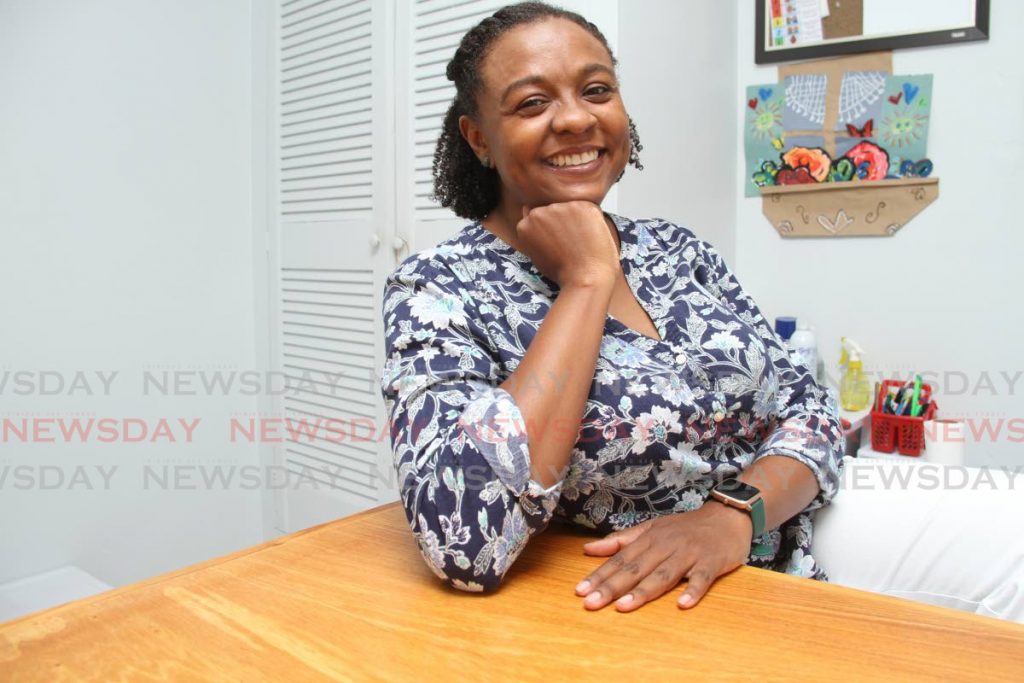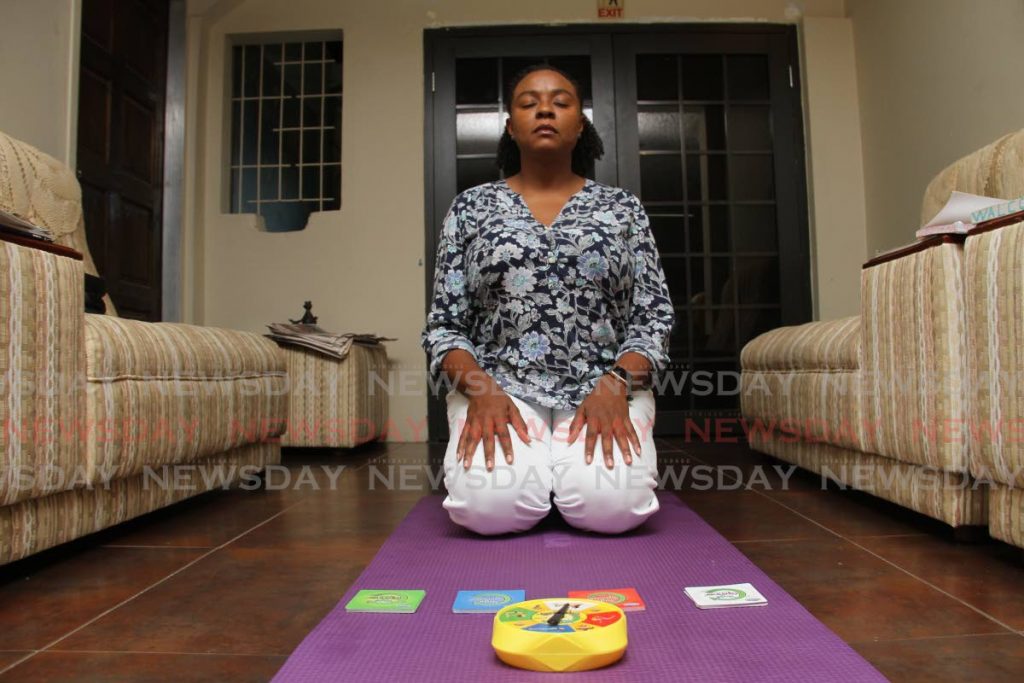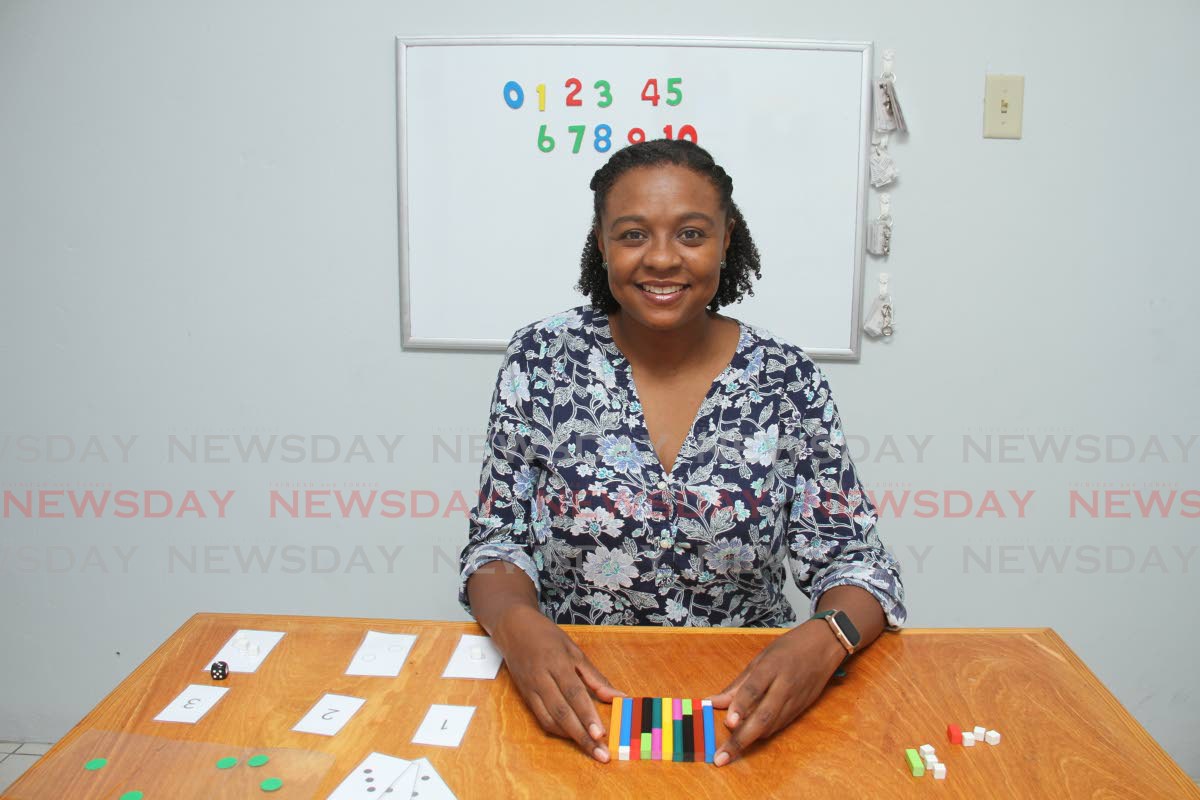Educational therapist Toni Blackett-Felix helps children with special needs learn
[ad_1]
Characteristics
Debbie jacob
When Toni Blackett-Felix first taught in a public school and worked with children with learning disabilities, she never imagined where her career in education would take her. Always keen to meet the educational needs of her students, she believed that many of the issues she faced could be due to the fact that she was a new teacher.
But something was wrong.
After completing her bachelor’s degree in behavioral science and moving to England with Frederick Felix, her late husband, a cognitive behavioral therapist, she considered a career change.
Cognition is defined as “mental action or the process of acquiring knowledge and understanding through thought, experience and the senses”.
“I was frustrated with teaching and didn’t think I wanted to start over. “
But she found her teaching experience offered more employment opportunities to teach children with special needs in England. There, she taught students with motor, cognitive and developmental problems like autism and cerebral palsy.
When Blackett-Felix returned to Trinidad with her family, she returned to working with children with special needs at schools like Life Center and Eshe’s.
“I started to realize that I had to change to better understand these children. I wanted to work on skills development. I had unique skills and a lot of experience after coming back from England. “

By 2013, Blackett-Felix had left the classroom to work one-on-one with students at her private practice, which she named Metanoia Educational Therapy, in Tacarigua. “Most of my kids with social needs issues have had academic issues. I took courses in teaching reading for people with language learning difficulties at the Dyslexia Association and obtained a postgraduate degree in education, globalization and inclusion with the University of Sheffield. I didn’t have a title for what I did. I didn’t know anything about what is called educational therapy.
Educational therapy is the clinical application of a cognitive intervention based on research. It combines social, psychological and academic disciplines to meet the learning needs of students.
Using psychometric and standardized academic assessments, an educational therapist produces data to understand a client’s learning challenges.
Educational therapy targets problems with reading, writing, math, spelling, learning and critical thinking as well as non-academic areas – learning strategies, problem solving, organization, attention, self-esteem , self-awareness, self-defense and motivation.
It deals with executive skills, that is, having the ability to take on challenges and achieve goals that we all face in life without procrastinating or giving up.
Educational therapists help students develop higher-order thinking skills that help plan and organize thoughts and behavior and manage time to accomplish large and small tasks. It examines how students use working memory when performing a task, metacognition (understanding how we think) social skills and behaviors.
“Basically it’s about understanding how people think and process information,†Blackett-Felix said. “It’s not just about acknowledging that you are having thoughts, but understanding how you got there.
“Some students need to learn more about controlling emotions. They need to self-regulate so that they are not easily angry or distracted and learn to focus and continue on a task despite fatigue, boredom or difficulty. Educational therapy can help develop all of these skills.
It’s also about being able to start tasks, working through procrastination, and being a flexible thinker. Students should be able to adapt when an obstacle or new information presents itself in their path.

“We work on goal-oriented persistence so that students learn to set long-term goals or to pursue to achieve their goals. “
These are skills that all students need to be successful.
Blackett-Felix is ​​a member of the United States-based Association of Educational Therapists, which defines and sets standards for the professional practice of educational therapy.
Educational therapists can help anyone become more effective learners. There is no program that an educational therapist uses. They teach skills and use evidence-based approaches to improve learning ability.
“At TT we have a strong culture of tutoring, but not all learning challenges can be solved by tutoring,†said Blackett-Felix.
“There are a lot of great teachers in our classes, but they don’t have the expertise to do educational therapy and they shouldn’t have to. My job is to support teachers. Sometimes parents and teachers don’t know what a learning challenge looks like.
She said children are often blamed for not listening, not taking notes or behaving badly in class. “This is a problem. Children don’t work to fail. When you have a behavior that persistently inhibits learning, it is a difficulty that may need to be addressed quietly. It could be something psychological like losing a parent.
She said there is a difference between disability and need.
“You don’t have to have a disability to need an intervention. You may have deficits in certain areas and never meet a diagnostic criterion. This does not mean that you do not need therapeutic intervention.
As part of case management, she must work with other professionals, including clinical psychologists, pediatricians, occupational therapists, speech language pathologists, neurologists, oncologists and anyone else involved in patient cases.
Blackett-Felix said educational therapists from around the world have come together virtually to discuss strategies for dealing with how blockages and virtual learning affect students.
“We are looking at the slow motion trauma of the pandemic. In most cases, the trauma is rapid and decisive. In case of long-term abuse, for example, you can determine the direction of the abuse, but this situation is not so clear. There is no definitive personal situation to blame in a pandemic. Uncertainty creates anxiety. We don’t know what the effects will be. Social skills challenges are likely to emerge. There is going to be a lost learning and perhaps a lost opportunity in terms of refining some social skills. “

But Blackett-Felix is ​​hopeful that proper intervention can get the kids back on track.
“I think that with a little patience and the recognition of children’s resilience, it will help, but I think teachers will need to do a lot of observation and document behavior to see trends ahead.”
She believes the real challenges will be in mental health and some executive skills that would not have been practiced so much in home learning.
“Some kids’ organizational skills might have looked better in home learning because they’re sitting in the same place with their books around them. What will happen now when they have to go from class to class, packing and unpacking books remains to be seen. “
It is believed that Blackett-Felix is ​​the only educational therapist registered in Trinidad and Tobago at present. They are rare in the Caribbean, but Puerto Rico has a few registered members.
As the children return to school, Blackett-Felix hopes the students will receive the help they need to settle in.
“I’m here to help make the job of teachers easier by working with teachers,†she said.
She hopes more people will consider becoming educational therapists.
“There are a lot of requirements and courses to take, but I really believe in this profession. It deals with the child as a whole, psychologically, socially and academically, â€Blackett-Felix said.
In the end, it is the multidisciplinary approach; the strong support and collaboration of the international community which makes educational therapy an important learning and advocacy tool, especially in this pandemic which has changed education.



[ad_2]
